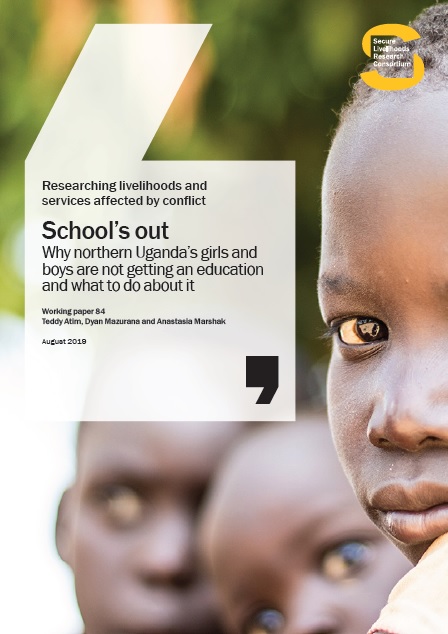Violent armed conflicts can have long-lasting negative impacts on individual human capital, including educational attainment, health outcomes, and labor market opportunities. This SLRC working paper examines education dropout and presents findings from research examining the sharp decrease in girls and boys school attendance that was witnessed between 2013–2018 in northern Uganda.
The study finds that:
- Between 2013 and 2018, primary school attendance declined for girls and boys by approximately 20%.
- Enrollment and attendance decreased for girls after age eight and for boys after age 13.
- Girls have the highest rates of school dropout and failure to regularly attend across upper primary, secondary and tertiary education.
- Individuals who experienced war injuries, abduction, forced recruitment by the rebels or suffered from other ill health were less likely to continue with their education or afford the schooling for their children.
The data presented in this study is drawn from a large-scale representative panel survey across Lango and Acholi sub regions, northern Uganda. It also draws upon in-depth qualitative research with a sample of households drawn from the SLRC panel survey.
The Secure Livelihoods Research Consortium (SLRC) is a six-year, eight-country research study, led by the Overseas Development Institute (ODI) in London. SLRC investigates livelihoods, access to basic services, and social protection in fragile and conflict-affected situations. The UK Department for International Development (DfID), Irish Aid, and the European Community (EC) funded the research. The Feinstein International Center leads SLRC research in South Sudan and Uganda in addition to its participation in the Sierra Leone research.







